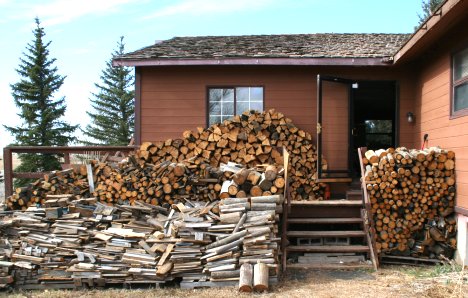
Whatever the color of the Administration, the relatively obscure wheels of scientific research and development continue along well-worn paths (whether the wording of the day is “low carbon” or “affordable, reliable and secure”). As I recall from my time in R&D, scientists readily change the title, and perhaps some introductory paragraphs, and voila! Thanks to the Forest Business Network for this link.
The U.S. Department of Energy (DOE) is providing up to $79 million in funding for bioenergy research and development including biofuels, bioproducts, and biopower. This funding supports DOE’s goal of providing consumers and businesses with a range of domestic energy options that are affordable, reliable, and secure.
Topics areas for the biofuel funding opportunity include the following:
- Cultivation Intensification Processes for Algae: Develop technologies for outdoor algae systems that increase the harvest yield, reliability and quality of algae.
- Biomass Component Variability and Feedstock Conversion Interface: Research to lower the cost and improve the reliability of biomass handling and preprocessing.
- Efficient Wood Heaters: Develop technologies to reduce emissions and increase efficiency of wood heaters for residential heating.
- Systems Research of Hydrocarbon Biofuel Technologies: Integrate new technologies and processes in experimental prototype systems to improve and verify real-world performance and lower the cost of drop-in biofuels.
- Optimization of Biomass-Derived Jet Fuel Blends: Identify and develop cost-competitive drop-in renewable jet fuel with improved energy density and lower particulate matter emissions.
- Renewable Energy from Urban and Suburban Wastes: Support academic research and educational programs that focus on strategies to produce bioenergy and bioproducts from urban and suburban waste feedstocks.
- Advanced Bioprocessing and Agile BioFoundry: Reduce the time and cost of developing biological processes for biomanufacturing fuels and products through the use of synthetic biology, low capital intensity methods, and continuous production systems.
- Plastics in the Circular Carbon Economy: Develop biobased plastics with improved performance and recyclability and lower the cost and energy-intensity of recycling existing plastics through enhanced degradation.
- Rethinking Anaerobic Digestion: Develop anaerobic processes or alternative strategies to enhance carbon conversion efficiency and lower costs of smaller scale wet waste systems.
- Reducing Water, Energy, and Emissions in Bioenergy: Identify biofuels or bioproducts technologies with the greatest potential for reducing water consumption, energy consumption, and/or emissions relative to existing conventional fuels or products.
This FOA also supports the Water Security Grand Challenge, a White House initiated, DOE-led framework to advance transformational technology and innovation to meet the global need for safe, secure, and affordable water. In particular, this funding will support research and development focused on anaerobic digestion, a technology that can help achieve the Grand Challenge’s goal to double resource recovery from municipal wastewater.
I particularly like the “wood heaters” project because there are many low-income people already use this as a primary heating source. New cool technologies are cool, of course, but making old uncool but widely used wood heat work better is also important.